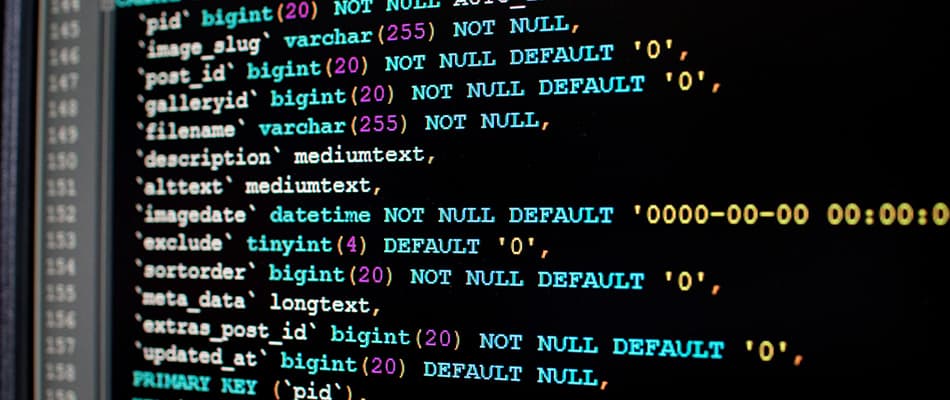How To Become A Data Analyst in Nigeria?- Know the Important Steps To Follow!
In Nigeria, almost every sector uses the power of data to improve decision-making and overall efficiency. Data analytics is not just for large companies anymore; it is a game-changer for entrepreneurs and small enterprises alike. Businesses can collect important information from many sources using simple data collection methods. This includes sales transactions, customer preferences, and online activities like website visits and social media interactions. With these insights, local Nigerian businesses can make better decisions to improve their operations and customer experiences. This shift can drive growth and innovation across the Nigerian market.
To meet this growing demand, many Nigerians wonder how to become a data analyst in Nigeria? People are looking for courses and training programmes that can help them develop the necessary skills. As a result, opportunities for aspiring data analysts are expanding rapidly throughout the country.
Read the article to know how to become a data analyst in Nigeria, the skills required to become one, etc.
Who is a Data Analyst?
A data analyst is a professional who examines and interprets data. They collect, process, and analyse information to help organisations make informed decisions. Their work involves using tools like spreadsheets, databases, and statistical software. Data analysts identify patterns and trends within the data, creating reports and visualisations to effectively present their findings.
If you are interested in this career, understanding how to become a data analyst in Nigeria can guide you on the necessary skills, tools, and educational pathways. Overall, data analysts play a key role in changing raw data into valuable insights. They also collaborate with various departments to ensure that data-driven strategies align with business goals and increase growth.
What Does a Data Analyst Do?
A data analyst plays an important role in helping organisations make sense of their data. They work with various datasets to find insights that can guide business decisions. Their tasks involve analysing trends, creating reports, and communicating findings clearly. Let us know some of their roles and responsibilities below:
- Collect data from multiple sources.
- Clean and organise data for analysis.
- Use statistical methods to identify trends.
- Create visualisations, such as charts and graphs.
- Prepare reports to share findings with stakeholders.
- Collaborate with teams to understand their data needs.
- Monitor data quality and ensure accuracy.
Know about data scientist vs data analyst vs business analyst here.
How To Become A Data Analyst in Nigeria?
If you are interested in becoming a data analyst in Nigeria, there are several steps you can take to secure your job in this high-demand field. Whether you’re starting your career or changing paths, follow these steps to get started:
- Start with a Strong Educational Foundation: If you are new to data analysis, you will need to build a strong educational background. Pursue an undergraduate or postgraduate degree in areas such as Computer Science, Mathematics, Statistics, or Economics. If you have a degree in another field, consider enroling in certificate programmes to gain the necessary skills.
- Develop Essential Technical Skills: You must develop specific technical skills to excel in data analysis. Focus on learning essential tools and languages, such as:
- Statistics
- Python or R programming
- SQL (Structured Query Language)
- Data visualisation tools (like Tableau and Power BI)
- Microsoft Excel
- Engage in Hands-On Projects: If you want to gain practical experience, look for opportunities to work with real datasets. Seek internships or participate in academic programmes that offer hands-on projects. Engaging with real data will help you apply your skills effectively.
- Improve Your Presentation Skills: Since communication is important in data analysis, take the time to practise presenting your findings. Work on telling a compelling story with your data, using visuals to support your message. This skill will be crucial when sharing insights with decision-makers in organisations.
- Start Applying for Entry-Level Positions: Once you have gained some experience and built your portfolio, it’s time to start applying for entry-level data analyst roles. Don’t hesitate to apply for positions even if you don’t meet every qualification. Your enthusiasm and willingness to learn can make a positive impression on hiring managers.
- Understand the Dynamics of the Nigerian Market: To be an effective data analyst in Nigeria, it’s essential to stay informed about the country’s unique economic, social, and business conditions. Continuously research emerging trends, local market patterns, and national statistics to understand the data needs of Nigerian businesses. This knowledge will help you apply your analytical skills to real-world problems and contribute valuable insights that address the specific challenges and opportunities within the Nigerian market.
Learn more about how to become a data analyst here.
Skills Required to Become a Data Analyst in Nigeria
To become a successful data analyst in Nigeria, certain skills are essential. These skills will help you understand and interpret data effectively, allowing you to provide valuable insights to businesses. Let us know how to become a data analyst in Nigeria with good skills.
- Data Preparation Skills: Data preparation helps you organise large and unstructured datasets into a usable format. This skill is important in industries like agriculture and finance, where data can be messy.
- Statistical Analysis: Understanding statistical analysis allows you to interpret data accurately. This skill is crucial for predicting trends in sectors like retail and telecommunications.
- Applied Machine Learning: Knowledge of applied machine learning helps you find patterns in data quickly. This skill is valuable in Nigeria’s fintech industry, where analysing customer behaviour is key.
- Programming Languages: Learning programming languages like R and Python is essential for manipulating data. These skills are in high demand in Nigeria’s growing tech industry.
- Data Visualisation: Data visualisation helps you present complex information clearly. Using tools like Tableau makes it easier to communicate insights to non-technical stakeholders.
- Database Management: Understanding database management systems like SQL is vital for extracting data efficiently. Many companies in Nigeria rely on databases to store important information.
- Business Acumen: Having knowledge of the local Nigerian business environment will help you improve your analyses. Understanding market trends and consumer behaviour is crucial for making informed decisions.
- Communication Skills: Strong communication skills are important for explaining findings clearly. Being able to convey insights to decision-makers can significantly impact business strategies.
Average Salary of a Data Analyst in Nigeria
According to Payscale, the average salary of a data analyst in Nigeria is around ₦1,395,529 per year as of October 2024. The salary varies based on factors like experience, location, and industry. In Nigeria, the demand for data analysts is growing due to the shift of many businesses towards making data-based decisions. The finance, healthcare, and technology sectors are particularly eager to hire skilled analysts. Additionally, the size of the company and the complexity of the projects can also affect salary levels. Overall, a career in data analysis offers good opportunities and the potential for financial growth.
Become a Data Analyst with Digital Regenesys
Knowing the right steps on how to become a data analyst in Nigeria will help you build your expertise in a short period. Different courses teach data analysis in Nigeria. One such course is the Digital Regenesys’s Data Science Course, which offers several benefits to the learners. Some of these benefits are below:
- Practical experience with programming languages like Python and R.
- Hands-on projects using real-life datasets.
- Live sessions with industry experts for real-world insights.
- Networking opportunities with over 300,000+ Regenesys alumni.
- Access to career counselling for professional guidance.
- Development of critical thinking and problem-solving skills.
- Exposure to advanced tools and technologies in data science.
- Learning how to manipulate and analyse large datasets.
- Opportunities to work on capstone projects for practical experience.
- Skill enhancement in data visualisation techniques.
- The flexibility of online learning to fit various schedules.
- Supportive learning environment with dedicated faculty.
- Globally recognised certification upon completion.
In conclusion, the path to becoming a data analyst in Nigeria is filled with opportunities for those willing to learn and adapt. By focusing on essential skills like data preparation, statistical analysis, and programming, you can equip yourself for success in this high-demand field. Understanding how to become a data analyst will improve your career prospects and empower you to contribute to the growth of businesses in Nigeria. Consider the Digital Regenesys data science course, which offers practical experience, hands-on experience, globally recognised certification, and much more. Enrol in the course today and take your first steps toward this rewarding career.
FAQs on How To Become A Data Analyst in Nigeria
How can I become a data analyst?
Start with a strong educational foundation and develop essential technical skills through courses and practical experience.
What skills do I need to become a data analyst?
The skills needed to become a data analyst are data preparation, statistical analysis, programming languages, and strong communication abilities.
How to become a data analyst with no experience?
Pursue relevant courses, engage in hands-on projects, and create a portfolio to highlight your skills to potential employers.
What is the average salary of a data analyst in Nigeria?
The average salary is approximately ₦1,395,529 per year, varying by experience, location, and industry.
What tools do data analysts use?
Common tools include Excel, SQL, Python, R, and data visualisation software like Tableau and Power BI.
How can I gain practical experience as a data analyst?
Look for internships, participate in academic projects, or use public datasets for hands-on practice.
Recommended Posts













